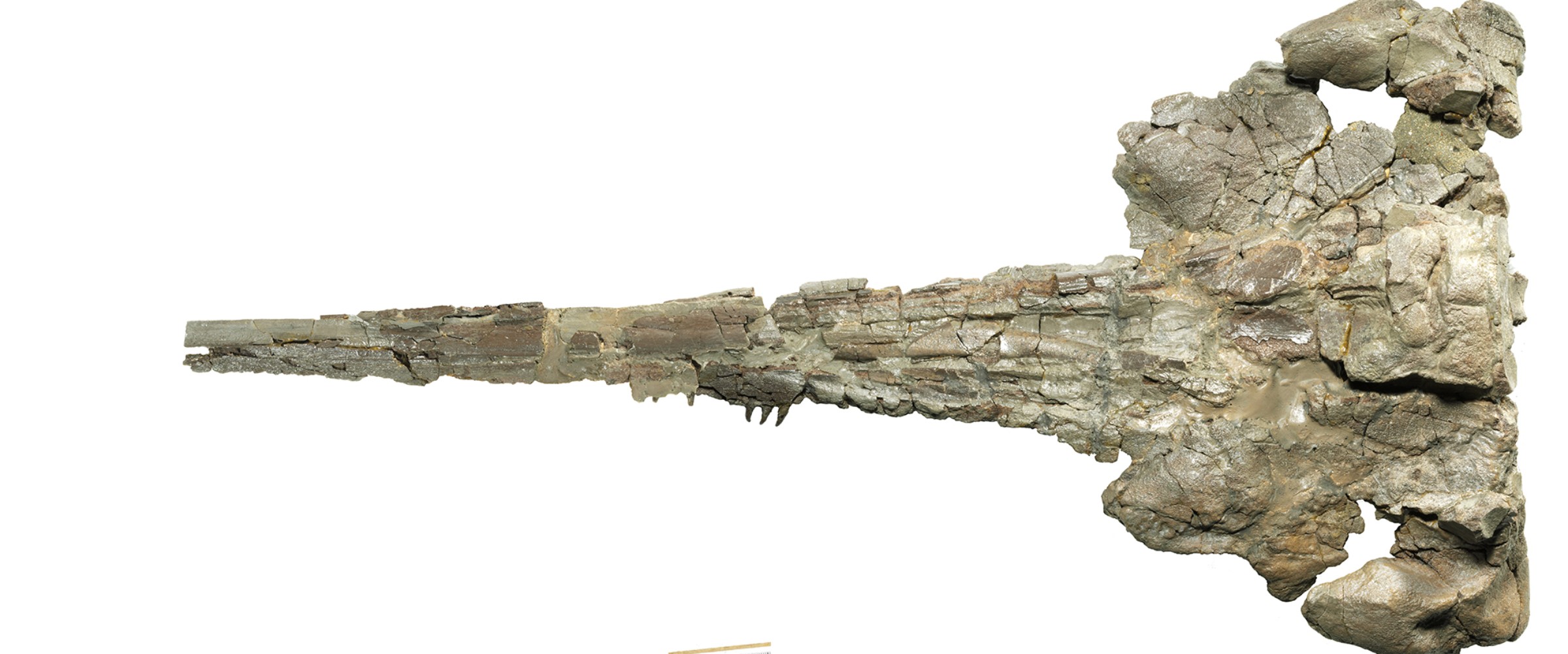2024-11-05 ミュンヘン大学(LMU)
 View from above: The skull of Romaleodelphis pollerspoecki. © M. Schellenberger, SNSB-BSPG
View from above: The skull of Romaleodelphis pollerspoecki. © M. Schellenberger, SNSB-BSPG
<関連情報>
- https://www.lmu.de/en/newsroom/news-overview/news/archaic-dolphin-could-hear-high-frequency-sounds.html
- https://www.tandfonline.com/doi/full/10.1080/02724634.2024.2401503
中央パラテティス(オーストリア、前期中新世)産の古生代イルカ Romaleodelphis pollerspoecki, gen. et sp. Romaleodelphis pollerspoecki, gen. et sp. nov., an archaic dolphin from the Central Paratethys (Early Miocene, Austria)
Catalina Sanchez-Posada,Rachel A. Racicot,Irina Ruf,Michael Krings & Gertrud E. Rössner
Journal of Vertebrate Paleontology Published:05 Nov 2024
DOI:https://doi.org/10.1080/02724634.2024.2401503
ABSTRACT
A new long-snouted homodont odontocete fossil from the Lower Miocene of Austria (ca. 22.5–22.0 Ma) is formally described and interpreted based on external skull characteristics supplemented by CT and µCT data. The specimen was found in deposits from the Central Paratethys and includes an incomplete and fragmented cranium and mandible as well as ear bones. It differs markedly from previously identified long-snouted archaic dolphins with single-rooted, homodont dentition, and thus is suggestive of a new taxon, for which the name Romaleodelphis pollerspoecki proposed. The geological context of R. pollerspoecki hints at a neritic habitat in close vicinity to estuarine environments. Romaleodelphis pollerspoecki shares key features with certain members of the so-called ‘Chilcacetus clade’ such as the widening of the premaxillae at the rostrum base and the absence of a deep lateral groove along the rostrum; however, a phylogenetic analysis reconstructs R. pollerspoecki in a polytomy with members of this ‘clade’ and a larger clade including many other taxa. To better understand the phylogenetic relationships of these taxa, comprehensive reexamination of Argryocetus and Macrodelphinus will be necessary. Measurements obtained through µCT-based internal anatomical reconstruction of the bony labyrinth indicate that R. pollerspoecki had the ability to hear specialized high-frequency signals similar to modern narrow-band high-frequency (NBHF) specialists. This work further identifies several extinct platanistoids as hearing within the NBHF spectrum, increasing the understanding of the diversity of ecological adaptations in early-diverging odontocetes and providing more examples of convergent evolution of this hearing type.


